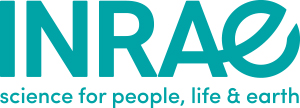l’Institut national de recherche pour l’agriculture, l’alimentation et l’environnement

INRAE (l’institut national de recherche pour l’agriculture, l’alimentation et l’environnement), the French National Research Institute for Agriculture, Food and Environment, focuses on 3 research topics: nutrition, agriculture and environment. The objective is to develop sustainable agricultural approaches respectful of the environment and promoting Humans health and nutritional needs. INRAE is Europe’s top agricultural research institute and the world’s number two centre for agricultural sciences (38Thttps://www.inrae.fr/en38T). With above 8,000 persons (2,000 researchers), 500 PhD students and more than 50% women, the institute publishes more than 4,000 scientific publications per year.
The INRAE TOXALIM unit (UMR1331) is INRAE’s research centre in Food Toxicology, with internationally recognized expertise in toxicology, metabolism, metabolomics & systems biology. Studies focus on the effects of toxicants on Human & animal health. Staff is 200 persons (75 researchers, 10 research teams, 3 platforms). The unit is involved in many collaborative research projects at the National & European (FP6, FP7, H2020) levels. INRAE is currently a partner in projects HBM4EU & PhenoMeNal (H2020-EINFRA-2014-2). Other notable EU projects include FP7 ITN “Paramet” (WP lead), EC IP “ProSafeBeef IP” (2007-12), ERA-NET FloraStopMRE (2016-20) & the coordination of the FR-UK ANR-BBSRC “Systryp” project in Systems Biology. INRAE is a core partner of the French national centre for metabolomics and fluxomics (“MetaboHub”) and of many ANR projects on exposure and hazards linked with EDCs and food contaminants.
Main tasks in Goliath. TOXALIM teams #2 “Metabolism of Xenobiotics” (D. Zalko, F. Jourdan) & #20 “Axiom” (L. Debrauwer) have been involved in the study of EDCs toxicology (fate, human exposure, effects including low dose and perinatal, metabolic modulation) since 1998. They pioneered the development of metabolomics and systems biology studies in this field since 2010. INRA will be involved in WPs 2 (DZ, co-lead), 3, 4, 5, 6 (FJ, lead), 7 and in WP9 (DZ: deputy coordination of the project; FJ: bioinformatics data management). LD will be responsible of all the NMR and MS metabolomics data generation tasks (WPs 2-5). Notably, FJ and LD are highly involved in MetaboHUB, the French National infrastructure in metabolomics & fluxomics (www.metabohub.fr).
Scientists involved
Dr Daniel Zalko, Vet, PhD in Life Sciences & Toxicology, Research Director at INRA Toxalim, heads the “Metabolism of Xenobiotics” team and is the deputy coordinator of the project. His research focuses on the metabolism of food and environmental contaminants, with an emphasis on relationships between bioactivation pathways and adverse toxicological outcomes of EDCs/MDCs. He has been in the expert panel of the EDC work group of ANSES and has published more than 60 scientific papers addressing the fate and effects of plasticizers, flame retardants, pesticides and other man-made chemicals. Projects include studies dealing with the disruption of metabolic pathways (global approaches, metabolic networks) secondary to an exposure to low doses of chemicals.
Dr Fabien Jourdan PhD in computer science, is a Research Director at INRA with 15 years of experience applied to the field of bioinformatics and toxicology. He develops bioinformatics methods to study genome-scale metabolic networks. FJ is leading a group developing the MetExplore web server (www.metexplore.fr, 500+ international users), which development is supported by the French National infrastructure for metabolomics and fluxomics, “MetaboHUB”, in which FJ is a WP co-leader. FJ is president of the French-Speaking Metabolomics and Fluxomics network since 2015.
Dr Laurent Debrauwer heads Toxalim’s analytical platform (“Axiom”) and co-heads the Toulouse Metabolomics Center (Metatoul). He is an analytical chemist with a 25-years’ experience in the development of MS based tools for the study of food contaminants. He pioneered metabolomic approaches in the field of food toxicology in the early 2000s. LD is author of more than 300 scientific papers and communications & a past president of the French Society for Mass Spectrometry (SFSM). He was awarded “Laurier de l’INRA for technological innovation” in 2015.